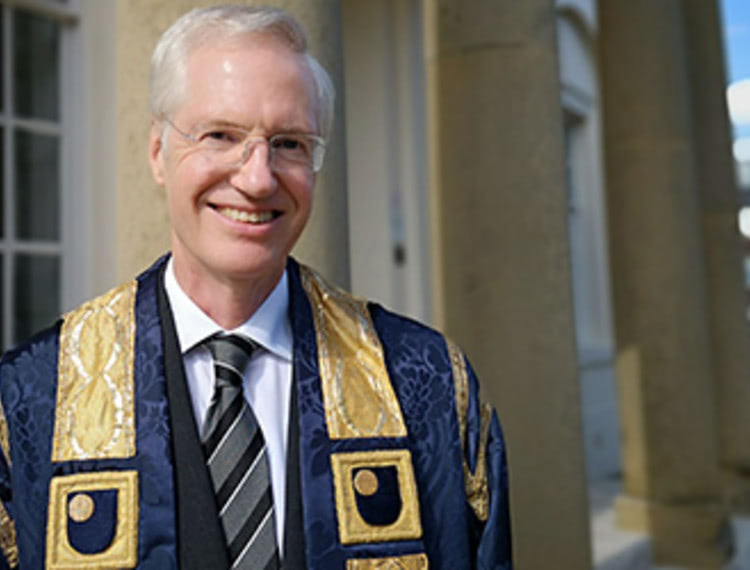Collective Optimism: A great foundation for a tertiary education system fit for the twenty-first century

Tim Blackman, Vice-Chancellor of The @OpenUniversity, welcomes the Independent Commission’s College of the Future – England report:
Our colleges are national assets. Yet, despite the attention that the FE sector is, at last, receiving in government policies, we still often hear the media and politicians talk about ‘schools and universities’ as if over two million college students are invisible.
As Vice-Chancellor of The Open University, I often have the same experience when higher education is discussed as if it is entirely about 18-21 year olds undertaking full-time degrees in residential universities, ignoring half a million part-time students, often adult learners.
This narrative of young residential full-time degree students and then ‘the rest’, whether college, commuter or part-time students, should not continue. It reflects the particular background and experience of many journalists, politicians and business leaders. We need to ask ourselves as a country whether this in more than just a reporting bias but is at the root of the long-standing problem we have with poor performance in productivity, innovation and skills development in the UK.
Both college students and part-time university students are vital to the UK having the skills needed for economic recovery and future economic well-being. They need to be very visible and front of mind in policy-making. This is not just because of the huge scale of unlocked potential but also because this is about ‘levelling up’ and improving life chances in every community.
We have been delighted to work with the Commission since it launched in Spring 2019 and to feature in its report, highlighting just one example of how the OU works with the FE community. As a national university-based in all four nations of the UK, where we have many excellent partnerships with FE colleges, I welcome the four-nation perspective of the Commission’s work, especially as there is so much to learn from comparing experiences across the UK’s nations.
I particularly welcome this report’s focus on England’s student maintenance support system and the call for a comprehensive student finance and maintenance support system across tertiary provision. As the report highlights, this must include ending the inequity that if you are a part-time student in England, studying at an institution registered as ‘distance learning’, you are not entitled to a maintenance loan.
Colleges are at the heart of our communities.
They need to be resourced more purposefully to help narrow the regional and local economic divides that exist across the whole of the UK. And they need to be part of a far more joined-up education and skills system.
This should not, however, be a system that takes us back to the twentieth century with ‘academically bright’ and socially privileged students studying ‘academic’ subjects and everyone else training in ‘technical’ subjects for an occupation.
The shelf-life of ‘technical’ knowledge and skills is shortening all the time, and the competencies that come with ‘academic’ education are in demand. As we move towards a more whole-system approach to tertiary education, there is an opportunity to mix ‘academic’ and ‘technical’ learners in the same institutions, breaking down social divides, and to enable learners to mix ‘academic’ and ‘technical’ learning as they develop portfolios over a lifetime.
The Commission emphasises the importance of collaboration and partnerships.
There are needs, for example, to create organised ‘one-stop-shop’ services for businesses seeking skills and support for innovation and to end wasteful and inefficient competition between institutions. More strategic and deep FE-HE partnerships will create the skills escalators and joined-up business support that can keep talent and income in places that are too often drained of these in favour of wealthier areas.
The OU, often seen as a university that exists in cyberspace rather than real space, is in fact a very local university, with students in every constituency of the UK, and often the major HE provider in the country’s most depressed coastal and rural areas. Our recently published report on the economic and social impact of the OU shows that 85 per cent of our graduates remain in the location where they studied, meaning this investment in knowledge and skills stays in their communities.
The vision for the future of colleges set out by the Commission presents the chance to bring the OU’s national capability to supporting the local mission of colleges, whether licensing state-of-the-art digital course content or designing articulation pathways.
To deliver this there is a pressing need to create more flexibility.
This includes enabling portfolios of short courses at different levels to be built up over time rather than the inflexibility of many current qualification designs and occupational standards, and recognising that a single period of concentrated study – often in our youth – is no longer the best way to learn for a good job or fulfilling life. Colleges and universities should collaborate on achieving this in a way that works best for learners.
In our experience at the OU, as the UK’s largest provider of flexible online learning, accessing opportunities to retrain and upskill is a particular issue for people with demanding work and family lives, for learners without traditional entry qualifications and for those who live in higher education cold spots that lack HE provision. This is not just an issue of social justice but bad news for business too. The annual Open University Business Barometer recently found that even during the Covid crisis 56 per cent of UK employers are experiencing skills shortages.
By opening up flexible opportunities and progression pathways, with the financial support that students need – and that will still provide a net Exchequer return in the long term – we can enable more learners, regardless of their age, stage, prior learning or personal commitments, to achieve their ambitions and build a stronger economy and more inclusive society.
The ‘collective optimism’ that this report embodies is surely a great foundation on which our policy-makers can build a tertiary education system fit for the twenty-first century.
We should all get behind this vision. Let’s seize the moment!
Tim Blackman, Vice-Chancellor of The Open University











Responses